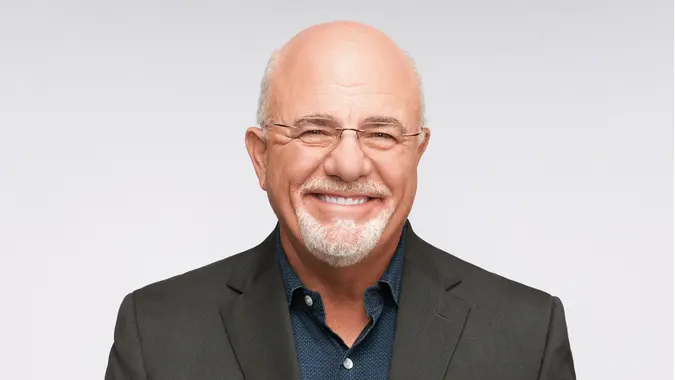Dave Ramsey: Here’s How Much Money You Should Have in Savings

Commitment to Our Readers
GOBankingRates' editorial team is committed to bringing you unbiased reviews and information. We use data-driven methodologies to evaluate financial products and services - our reviews and ratings are not influenced by advertisers. You can read more about our editorial guidelines and our products and services review methodology.

20 Years
Helping You Live Richer

Reviewed
by Experts

Trusted by
Millions of Readers
Key findings from a GOBankingRates survey polling 1,063 Americans revealed that 73% of overall Americans currently have a savings account open. In a separate question asking how much money was in their savings account, however, 36% of overall Americans said they kept $100 or less in this account.
Is this amount correct? Exactly how much money, on average, should be in your savings? Money expert Dave Ramsey shared his recommendations in a post on Ramsey Solutions, offering insights about how much money should be in your various savings vehicles. Here’s how much money should be in your savings account.
How Much Money Should You Have in Savings?
Ramsey doesn’t have a set dollar amount that should be in everyone’s savings accounts. Rather, the answer in determining this amount depends on your savings goal.
Those who have a savings goal know what they are saving for and which goals make up their top financial priorities. This answer will vary depending on each person, their lifestyle and what they would like to achieve in their own life. Some may have a savings goal dedicated to homeownership, while others may be saving for a car purchase.
The post on Ramsey Solutions suggests that a savings goal is not the same thing as saving for an emergency fund or saving for a sinking fund. An emergency fund is savings dedicated to covering unforeseen expenses brought on by genuine emergencies, like your roof caving in or losing your job. Meanwhile, savings set aside in a sinking fund are budgeted to cover expenses coming up in the near future, like buying a new mattress.
How Much Money Should Be in Your Emergency Fund?
Ramsey’s general recommendation in his Baby Steps has long been to start with having $1,000 saved in a starter emergency fund. If you earn less than $20,000 a year, Ramsey Solutions recommends adjusting this amount to $500.
Once you have a starter emergency fund fully funded, he recommends paying off all debt other than your mortgage in full. Then, you can move on to Baby Step 3 which is to save three to six months’ worth of expenses in an emergency fund. To calculate this amount, Ramsey recommends adding up your necessary, regular expenses each month such as housing expenses, groceries, utilities and transportation.
When you have the final figure for one month, multiply by three (or six) to determine how much you’d need for your emergency fund.
How Much Money Should Be in Your Sinking Funds?
The amount of money kept in your sinking funds, according to the post on Ramsey Solutions, is ultimately the amount of money saved and budgeted towards paying for an upcoming known expense.
Let’s use the example that you know you’ll be buying a new mattress relatively soon. You plan to spend $900 on the mattress, so over the course of the next three months you would set aside $300 per month in your sinking fund to reach this goal.
How Much Money Should You Have in Retirement Savings?
The answer to this question is less about the exact dollar amount of money in one’s retirement accounts, but rather how much any one person should save for retirement.
According to the Ramsey Solutions post, the recommendation is to invest 15% of your household income for retirement. The article uses the example of a household income which is $80,000 annually. Based on these earnings, each year you need to invest $12,000 towards your retirement savings.
The good news is there’s no limit to the amount of money you can (and should!) keep in your retirement savings account. If you have retirement accounts, like a company 401(k) with a company matching program, Ramsey recommends taking advantage of it and investing anything leftover into Roth IRAs.
 Written by
Written by  Edited by
Edited by 
























